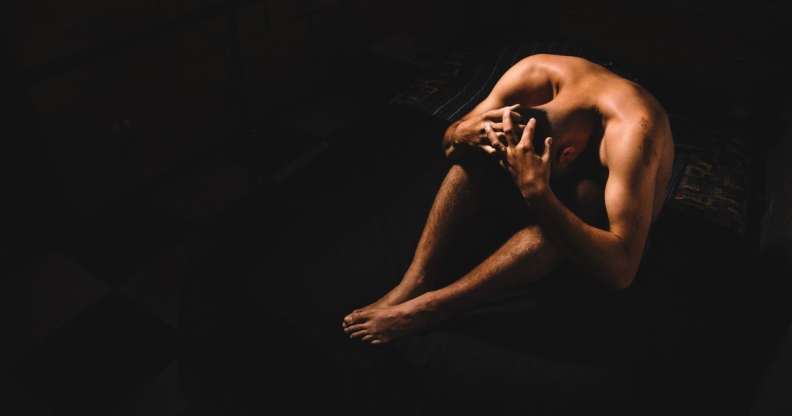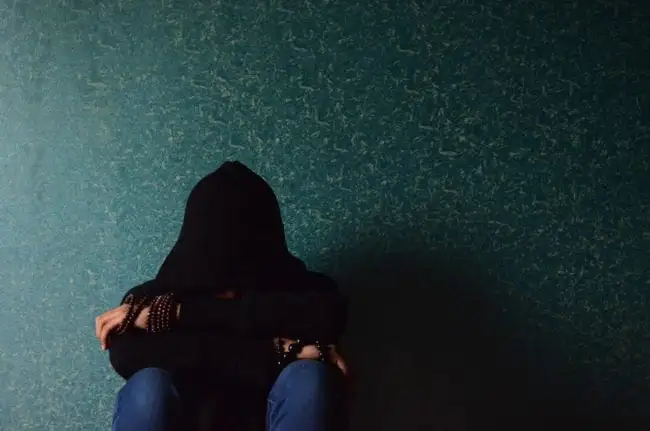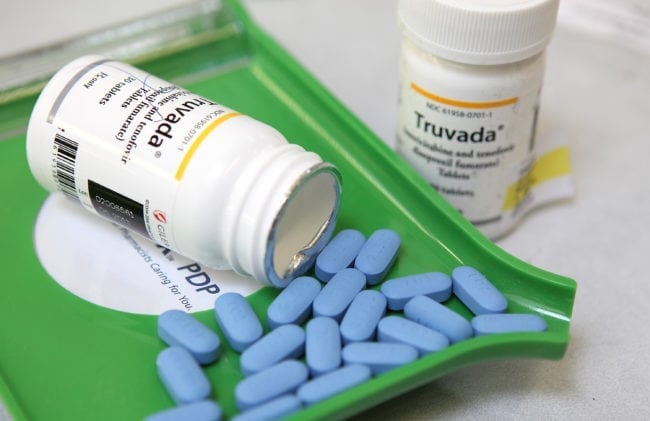Gay men who feel lonely are 67 percent more likely to have unprotected anal sex, study shows

“There is evidence that such a discrepancy can lead to mental health problems” (Pexels)
Men who have sex with men are two-thirds more likely to have unprotected anal sex in which they receive, a study has found.
Past studies have indicated that gay and bisexual men are more at risk of contracting HIV if they have mental health problems, but the latest findings show the extent of the issue.
Researchers have revealed that of the 507 Chinese people who took part in their study, those “who reported feeling lonely were more likely to have had condomless receptive anal intercourse in the past 6 months.”

Lonely subjects are also more than twice as likely to feel “hopeless for the future” (Pexels)
The experts, who are based at institutions in California and the Chinese cities of Beijing and Nanjing, said the difference was stark, with lonely subjects 67 percent more likely to have unprotected receptive anal sex.
They are also more than twice as likely to feel “hopeless for the future” when compared to others, according to the study.
Out of all the participants, more than a quarter – 26.8 percent – reported moderate-to-severe symptoms of depression, while 35.5 percent said they felt lonely.

Those who have unprotected receptive anal sex are more likely to get HIV (Creative Commons)
The researchers concluded that “men who have sex with men (MSM) in China have significant rates of depression and loneliness.
“HIV prevention efforts should address the mental health needs of Chinese MSM such as providing safe environments for social support and role models.”
Last year, a report by sexual health charity Terrence Higgins Trust on the first generation of people growing old with HIV warned that they were facing poverty, loneliness and discrimination.

“HIV prevention efforts should address the mental health needs of Chinese MSM” (Pexels)
The charity warned of a social care ‘timebomb’ ahead due to the scale of challenges faced.
Nearly 6 out of 10 (58 percent) of people 50 and over living with HIV who were surveyed are living in poverty – double that seen in the general population. Meanwhile, 84 percent of respondents were concerned about future financial plans.
The survey of over 240 older people living with HIV also showed that 82 percent experienced moderate to high levels of loneliness – three times more than the general population of the same age.
And last month, a report by a cross-party group of UK parliamentarians found that anti-gay stigma in middle-income countries is harming the global fight against HIV/AIDS.

Anti-gay stigma in middle-income countries is reportedly harming the global fight against HIV/AIDS (Justin Sullivan/Getty Images)
The lawmakers warned that marginalised groups “risk falling behind in the HIV response” because of stigma.
The No One Left Behind report highlighted gaps in provisions for marginalised groups in middle-income countries, as international donors are refocusing funding in poorer regions.
In February, it was revealed that the number of HIV diagnoses in the Philippines has rocketed by 3,147 percent over the past 10 years.
The news came days after Filippino president, Rodrigo Duterte, said that people shouldn’t use condoms because they aren’t “pleasurable”.

